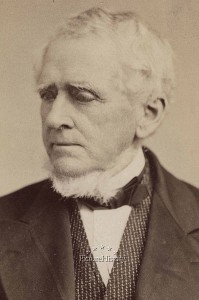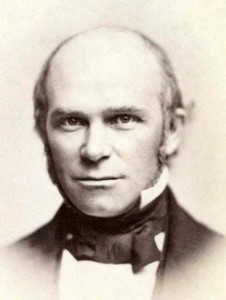Louisiana Joins the Revolutionary Crowd and Evicts Some Sick People
As Civil War Daily Gazette has reported, 150 years ago today Louisiana officially seceded from the United States. A motion to let the people vote on secession was voted down. Here’s The Times take on the convention and an action by Louisiana state troops on January 11th that seems a bit brutal.
From The New-York Times January 28, 1861:
The Louisiana State Convention, on Saturday, passed the ordinance of secession, in the same terms in which it was originally reported from the Special Committee of Fifteen, to whom the duty of preparing it had been intrusted. The vote on its passage stood, 113 for to 17 against it. A delay ordinance, proposed to be substituted for the Committee’s report, was voted down on Friday by a large majority. It was the evident intention of the leaders in the Convention to discountenance delay in every possible manner, and the final action was pressed with almost indecent haste. As an evidence of a determination to disregard even the wishes of the people of the State, it is only necessary to say that a proposition to submit the ordinance to the popular vote was voted down, 84 to 45. The resolution accompanying the ordinance, declaring the right of free navigation of the Mississippi and its tributaries by all “friendly powers,” was passed unanimously. The Convention then adjourned to meet again in New-Orleans on the 29th. Six States have now declared their connection with the Union dissevered — South Carolina on the 20th of December, Mississippi on the 9th of January, Florida and Alabama on the 11th, Georgia on the 19th, and Louisiana on the 26th.
The most unfeeling outrage which has yet been perpetrated by the Disunionists was committed at New-Orleans on the 11th inst. A party of Louisiana State troops under command of Capt. BRADFORD, took possession of the United States Marine Hospital about two miles below the city. The patients in the Hospital, numbering two hundred and sixteen, were ordered to be removed, — those who were convalescent, immediately, and those who were confined to their beds, as soon as possible. The reason assigned for this inhuman action was that the authorities wanted the quarters for their own troops.
Relating to the First American Revolution
From The New-York Times January 28, 1861:
Revolutionary Musket Presentation.
BOSTON, Saturday, Jan. 26.
The presentation of the Revolutionary musket bequeathed by the late THEODORE PARKER to the Commonwealth, took place to-day at the State House. The members of both Houses were in attendance, and also a large number of citizens. The musket, with its accoutrements, is an old King’s arm, and was taken by the late Capt. PARKER from a wounded British soldier during the retreat of the British force from Concord and Lexington. Gov. ANDREW, in an impressive and eloquent speech, presented the weapon, which will be placed in the State Chamber, with the other Revolutionary relics.
1) More news about Louisiana’s secession and the action at the Marine Hospital can be found at Son of the South. This includes information about Treasury Secretary John Dix trying to get to the bottom of the matter. In a letter to the Collector of New Orleans he explained that he (Dix) contacted Louisiana’s governor to “remonstrate with him against the inhumanity of Captain Bradford’s order, and to ask him to revoke it.” Dix threatened to cut off funding to repair a revenue ship unless Dix could be sure the revenue cutter would not be seized by the state when repairs done.
2) Theodore Parker was a famous abolitionist and grandson of John Parker, who led Americans at the Battle of Lexington. Theodore Parker worked to oppose enforcement of the 1850 Fugitive Slave Law in Boston.
3) Liberty: A Lexington minuteman, an abolitionist, and the seceders (including some new-style minute-men).
The action at the Marine hospital seems tame by what I’ve heard is going to happen in the prison camps North and South.


